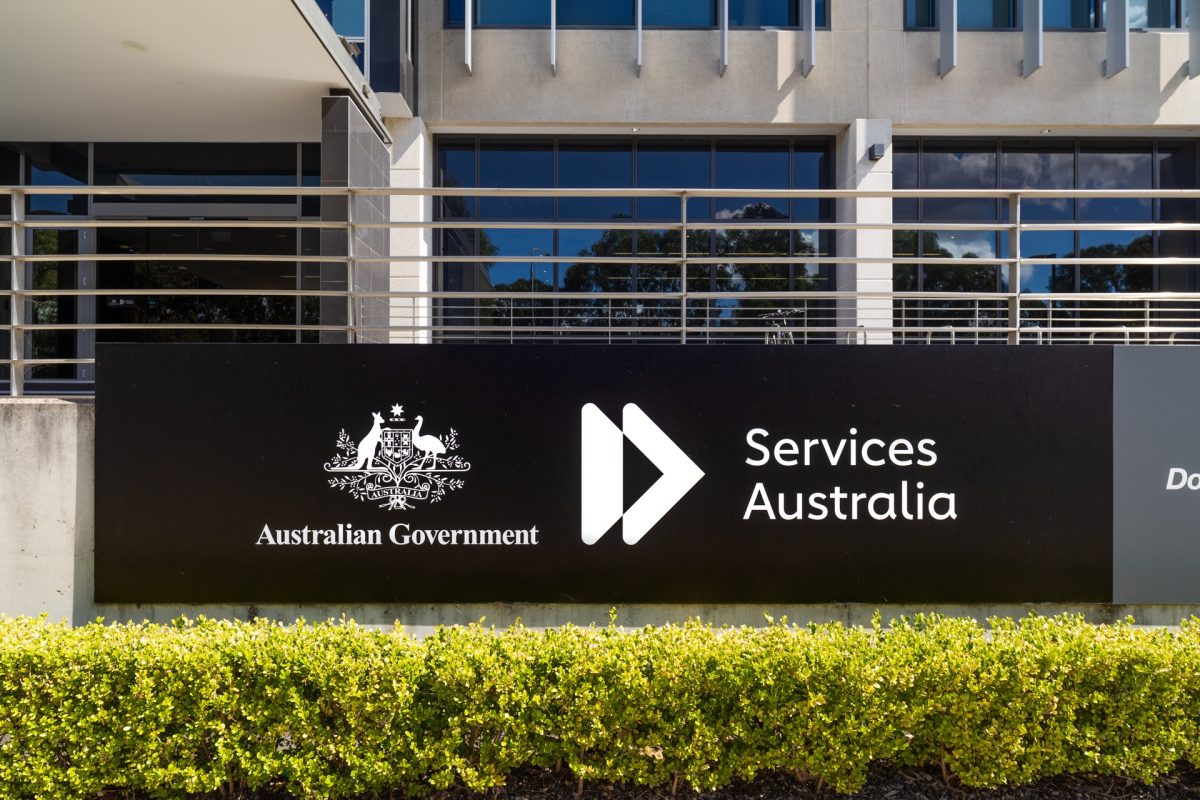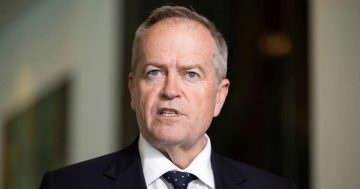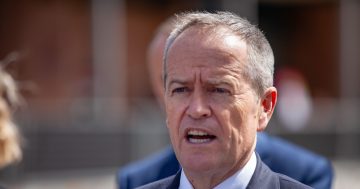
Services Australia execs were extensively grilled in Senate Estimates over the appointment of a speechwriter for Minister Bill Shorten. Photo: Michelle Kroll.
An external contractor has been engaged in Services Australia at more than twice the pay rate of the agency’s best paid communications officers, for a two-year engagement writing speeches for Government Services Minister Bill Shorten.
A Budget Estimate hearing was told on Monday (3 June) that speechwriter Julianne Stewart was being paid more than $300,000 a year to write speeches for the Minister.
She is based in his office and also writes ministerial speeches for the Minister’s NDIS portfolio.
This is despite Services Australia officials confirming Mr Shorten already had a team of speechwriters and that the agency itself had the internal capacity to assist the Minister further without resorting to external contracts.
Under questioning from Liberal senators Maria Kovacic and Linda Reynolds, Services Australia deputy chief executive officer for strategy and performance Susie Smith confirmed the agency had speechwriters in its communications team.
There are 189 full-time-equivalent personnel in Services Australia’s communications staff.
“We do have the capability, but I think it comes down to a question of choice,” Ms Smith said.
When Senator Kovacic asked what the “best of the best” of the internal speechwriters would be paid, Ms Smith said they would be earning about $140,000 a year.
The Liberal senators expressed outrage that an external contractor was being paid twice as much as the agency’s top comms staff, particularly when there appeared to already be more than enough speechwriting staff at the Minister’s disposal.
But after the lunch break, Ms Smith returned with additional information, saying Ms Stewart was engaged after an open recruitment process had failed to find a suitably qualified candidate.
Recruitment panels, other agencies and sources also failed to deliver a preferred candidate, so a “direct source” appointment was made after the “market failure”.
It was made as part of the pandemic response surge, and at a time when the agency’s principal speechwriter had retired and the only other senior writer had resigned.
Ms Smith also informed the committee that the contracted speechwriter was also employed to “train and mentor” other writing staff to help build internal capacity.
But the senators were unrelenting in grilling Ms Smith over the appointment, why no one else fit the criteria, and why such a high salary was being paid.
Dozens of questions were taken on notice.
The same Senate Estimates session also explored the now controversial secondment to Services Australia in April last year of former deputy secretary of the Department of Parliamentary Services Cate Saunders.
Ms Saunders was seconded to Services Australia over conflict of interest issues involving the nature of her relationship with DPS Secretary Rob Stefanic.
But she left the secondment and the Australian Public Service early with an “incentive to retire” payout of more than $315,000.
The issue was discussed – and reported – at length when DPS officials appeared before estimates last week.
Liberal Senator Jane Hume led the inquisition last week and jumped into this new committee hearing on Monday to try and secure more information about the intriguing saga.
Chief operating officer Danielle Regeling confirmed Ms Saunders’ role with Services Australia was as general manager of people, and that she left the agency before her secondment had ended.
She said an “incentive to retire” conversation could be initiated either by the employee or the agency and that it was unique to the situation.
An “incentive to retire” is not a redundancy and doesn’t require the recipient to have completed the tasks they have been assigned.
But it became clear that no one being questioned was aware of other circumstances involving an “incentive to retire” being offered to someone on secondment.
Ms Saunders’ offer was made after she was informed her work at Services Australia would not be ongoing and that she could not return to DPS.
Original Article published by Chris Johnson on Riotact.







